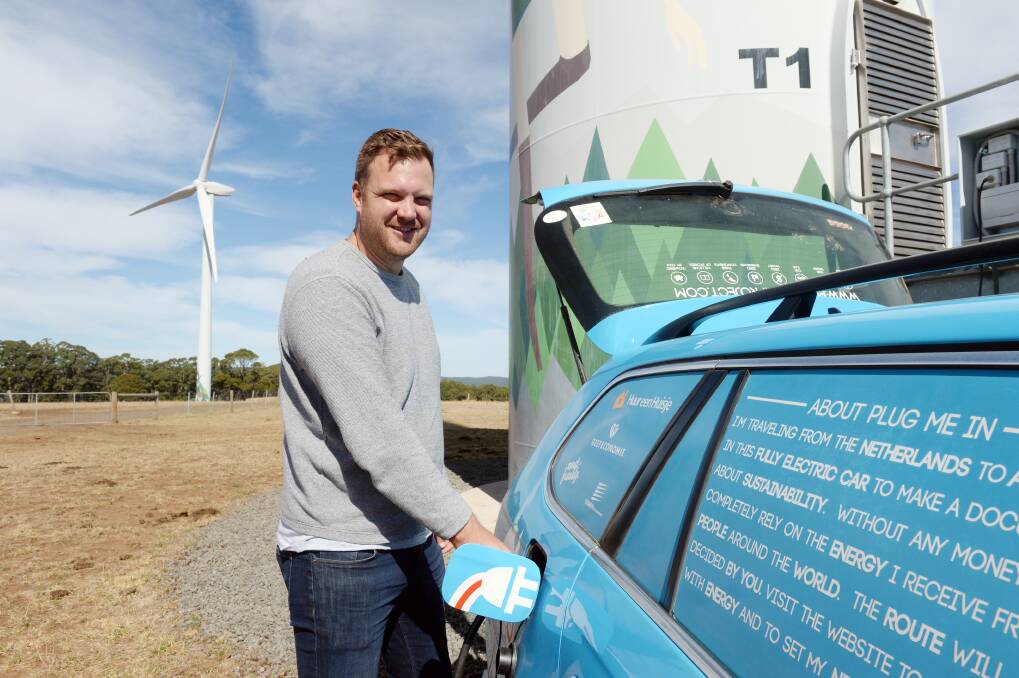
Wiebe Wakker traversed the globe on a unique mission.
Subscribe now for unlimited access.
or signup to continue reading
In 2016, Mr Wakker departed Amsterdam in his converted electric vehicle with a goal to emit zero emissions, use zero money and rely solely on the kindness of strangers.
He started a website and asked people to offer him a place to sleep, a meal or electricity to charge his car.
Almost 2000 people signed up.Throughout his three year journey, which is set to wrap up this April, Mr Wakker travelled 90,000 kilometres and visited 33 countries.
"These offers determined the route I took. I crisscrossed around the world from Italy to the top of Scandinavia, Eastern Europe, the Middle East and South East Asia. When I reached East Timor I put the car on a container ship and finally reached Darwin last June and have been circling Australia for a few months," he said.
Mr Wakker said his goal was to prove the viability of electric cars.
"Basically I want to change people's opinions because people assume electric cars are not reliable or you cannot travel for long distances. I just want to create awareness," Mr Wakker said.
He said it was not difficult to charge his car, which can travel about 200km before needing to be charged, in any of the countries he visited.
His car does not need any special connections and can be plugged in to any household electrical socket.
"You can find electricity everywhere and in places like Europe or Asia, the population is so dense so I felt comfortable to drive with only four per cent battery and was sure I could find a house or business where I could charge my car," he said.
"I am proud of what I achieved. I did have to spend money on shipping the car a few times and stopped a few times to work jobs in Dubai and Kuala Lumpur."
Last week Mr Wakker stopped to charge his car at Hepburn Wind in Leonard's Hill.
With a normal household plug, it takes Mr Wakker 12 hours to fully charge his vehicle. But with a specialised electric vehicle charging station, it only takes four hours.
He said many countries were starting to build more electric vehicle infrastructure.
Taryn Lane, Manager of Hepburn Wind, said Wiebe had shown that even with a converted petrol car, he has been able to travel really long distances.
"The technology has changed so much in the past few years and that is really exciting to see where it is going and what is possible," Ms Lane said.
"It is important for us in considering our goal to have zero net emissions locally and the role transport will play in that."
Ms Lane said sustainable transport was about 30 per cent of the soon-to-be released Z-Net Project, which outlines how the community can cut emissions to zero by 2030.
Have you signed up to The Courier's variety of news emails? You can register below and make sure you are up to date with everything that's happening in Ballarat.













